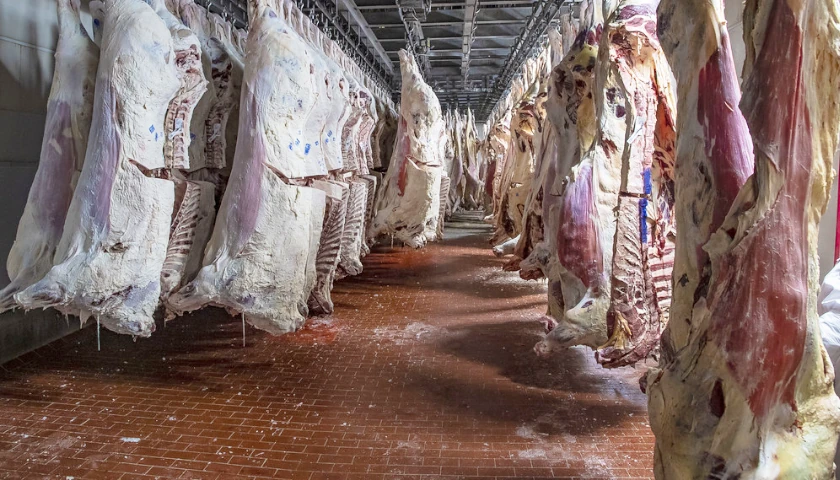Retired attorney A.S. Martin, who has closely followed the election illegalities in Arizona, filed bar complaints against 12 Maricopa County Superior Court judges who ruled on election lawsuits in 2020 or 2022 despite being on the ballot themselves for retention elections. Martin said she believes this is a conflict of interest and self-dealing since the judges had an interest in upholding the election due to wanting to retain their seats. Usually, judges easily win retention elections, but this past year was different, since progressives targeted some of them, causing three judges to lose their elections.
Fifteen Maricopa County Superior Court judges ruled on 2020 and 2022 election-related cases in which they had a direct interest: Their own seats. 😲#HowTheyDoIt #NameTheNames https://t.co/l3kW3ZInoo
— Kimberly “Kim” Wexler, MA JD (@KimWexlerMAJD) December 3, 2023
Conservative Wisconsin Supreme Court Justice Daniel Kelly recused himself from a major case involving the potential removal of more than 200,000 people from the state’s voter rolls in 2020 due to being on the ballot himself. After he lost re-election, he undid his recusement and resumed participating in the case.
Martin published an article earlier this week on Substack going over the judges she filed complaints against and their rulings. “We are witnessing a judge presiding in Maricopa County Superior Court, whose seat is subject to the approval of the voters, ruling on cases that directly involve his own retention and the very ballots upon which his own name is printed,” she said.
Martin cited Rule 1.2 of the Arizona Code of Judicial Conduct. It provides in part, “A judge shall act at all times in a manner that promotes public confidence in the independence, integrity, and impartiality of the judiciary, and shall avoid impropriety and the appearance of impropriety…. Conduct that compromises or appears to compromise the independence, integrity, and impartiality of a judge undermines public confidence in the judiciary.”
She noted, “The test for ‘appearance of impropriety,’ laid out in the rule’s Comment 5, ‘is whether the conduct would create in reasonable minds a perception that the judge violated this code or engaged in other conduct that reflects adversely on the judge’s honesty, impartiality, temperament, or fitness to serve as a judge.’”
Martin said, “For an elected judge whose own seat is up for retention to preside over a case challenging the election upon which his own seat depends, or to rule in matters pertaining to the disclosure of records related to his own retention ballot, creates in reasonable minds the objective appearance of impropriety.”
Rule 2.11 requires judges to disqualify themselves “in any proceeding in which the judge’s impartiality might reasonably be questioned….” This includes “more than a de minimis interest that could be substantially affected by the proceeding” or “an economic interest.” She noted that Maricopa County Superior Court judges make an annual salary of $148,220.80.
Even if judges believe they don’t need to disqualify themselves, they are required to disclose the possibility of disqualification to the parties, which none of the judges did. Comment 5 to Rule 2.11 states, “A judge should disclose on the record information that the judge believes the parties or their lawyers might reasonably consider relevant to a possible motion for disqualification, even if the judge believes there is no basis for disqualification.”
Martin suggested that the judges may have also violated a rule against partisan bias. Rule 2.3 (B) provides, “A judge shall not … manifest bias or prejudice … based upon … political affiliation.” She surmised, “[P]articipation in adjudicating election-related cases in 2020 and 2022, viewed collectively, could be perceived as organized political discrimination since rulings in nearly every case reviewed came down against those who challenged Democrats or government officials.”
Martin hinted that Canon 4 may also be implicated. It states, “A judge or candidate for judicial office shall not engage in political or campaign activity that is inconsistent with the independence, integrity or impartiality of the judiciary.”
She explained, “Ruling in cases that have a direct impact on an election’s outcome when one’s own seat depends on that outcome is an outrageous abuse of court resources to further that judge’s campaign for office.”
The judges Martin filed complaints against are:
- Maricopa County Superior Court Judge Bradley Astrowsky
- Maricopa County Superior Court Judge John R. Hannah, Jr.
- Maricopa County Superior Court Judge Daniel J. Kiley
- Maricopa County Superior Court Judge David J. Palmer
- Maricopa County Superior Court Judge Joseph P. Mikitish
- Maricopa County Superior Court Judge Michael W. Kemp
- Maricopa County Superior Court Judge Randall H. Warner
- Maricopa County Superior Court Judge Katherine Cooper
- Maricopa County Superior Court Judge Melissa Iyer Julian
- Maricopa County Superior Court Judge Joan Sinclair
- Maricopa County Superior Court Judge Dewain D. Fox
Martin is about to file a 13th judicial complaint against Alison Bachus, who was recently promoted to the Ninth Circuit Court of Appeals. Maricopa County Superior Court Judge Margaret R. Mahoney is now retired, but Martin filed a complaint against her anyway. Martin has not looked into judges in other Arizona counties or Arizona Supreme Court and Arizona Court of Appeals justices but may do so in the future. Her complaints all look similar to this one, which was filed against Judge Julian.
– – –
Rachel Alexander is a reporter at The Arizona Sun Times and The Star News Network. Follow Rachel on Twitter / X. Email tips to [email protected].








